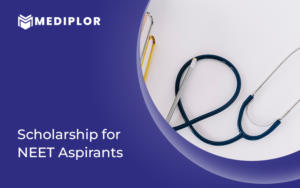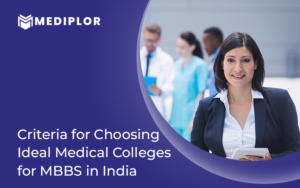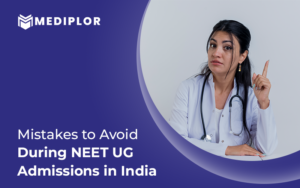A medical school is a major educational institution, or a division of one, that teaches medicine and grants doctors and surgeons a professional degree. Such an institution can also be known as a school of medicine, medical school, or faculty of medicine.
Many medical schools offer undergraduate and graduate programs leading to MBBS, BMedSc, BMed, BMBS, MBChB, MD, or DO degrees. In addition to the MD and DO, the licensure boards of most states readily accept degree programs awarded by osteopathic medical schools in the United States.
Admission into osteopathic medical school typically requires four years of undergraduate study followed by four years of medical school leading to the Doctor of Osteopathic Medicine (DO) degree. Students usually begin taking classes toward the end of their junior year in college and complete all coursework during their senior year so they may enter medical school immediately upon graduation.
Things to keep in mind about Private colleges
Private colleges are independently operated higher education institutions that are not owned or governed by the state or any other public entity. Instead, private colleges generally rely on tuition from students as well as private donations from alums and supporters to function. As a result, these schools often have more freedom to set their own admissions standards and curricula than public colleges and universities.
For example, many private colleges emphasise standardised test scores more than public colleges. In general, private colleges are also more expensive than public schools. However, they may offer scholarships and other financial aid to help offset the cost of attendance.
Some of the pros of private colleges include:
Admission into any college is a significant life decision that should not be taken lightly. Therefore, students should carefully research each type of institution before deciding which one is right for them. Some of the benefits of private colleges are:
-Private colleges generally have smaller class sizes which can lead to more one-on-one attention from professors.
-Private colleges often have more resources available to students.
-Private colleges typically have more selective admissions criteria which can lead to increased opportunities for scholarships and financial aid.
-Private colleges usually offer a more traditional on-campus experience.
Minimum Marks Requirement for Admission To Private Medical Colleges Through NEET
The National Eligibility cum Entrance Test, commonly known as NEET, is the main entrance exam for students seeking admission to medical colleges in India. To be eligible for admission to a private medical college through NEET, students must score at least the 50th percentile in the exam.
However, students who belong to specific categories, such as Scheduled Tribes or Other Backward Classes, only need to score 40th percentile. The Ministry of Health and Family Welfare has announced that the minimum marks required for admission to private medical colleges through NEET 2022 will be increased to the 60th percentile.
This change will come into effect from next year’s academic session. The decision has been made to ensure that only qualified students gain admission to medical colleges. It is also hoped that this will help to improve the quality of doctors in India. Taking access to a private medical college has both pros and cons associated with it.
Factors affecting NEET 2022 Cutoff
The NEET cutoff is the minimum score required to qualify for admission, and it varies depending on factors such as the number of applicants and the difficulty of the exam. In recent years, the cutoff has been steadily increasing, reaching an all-time high of 700 in 2020.
With the number of applicants expected to rise in 2021, the cutoff will likely increase again. However, a few factors could help students improve their chances of qualifying for admission. First, students who have scored well in their Class 12 exams are more likely to be eligible for admission.
Second, those who have completed their medical studies at a recognised institute are more likely to qualify. Finally, candidates who have obtained a high score in the entrance exam are more likely to be considered for admission. Given these factors, it is clear that the NEET 2022 cutoff is expected to be higher than ever before. As a result, students must focus on their studies and ensure they are well prepared for the exam.
Things to take care of when giving the NEET exam for the first time
The National Eligibility cum Entrance Test, or NEET, is one of the most important exams you will take in your life. It will determine your future course of study and your career. So, it’s natural to be feeling a little nervous. To help you ease your mind and give yourself the best chance of success, here are seven things to take care of before taking the NEET exam:
- It is important to familiarize yourself with the format of the exam and the types of questions that will be asked. This will help you to feel more prepared and confident on test day. However, all questions are worth points, so try every question. In addition, make sure to read each question carefully and answer it completely. Finally, if you have time remaining at the end of the exam, go back and check your work to ensure that you have not made any errors.
- Second, create a study schedule and stick to it. Be sure to allocate enough time to review all the material covered on the test.
- Finally, take practice exams under timed conditions to get a feel for the test day.
By following these simple steps, you can help ensure that you are ready for the NEET exam.
Conclusion
Generally, a score of 50 percentile or more in NEET-UG is required to be eligible for admission to an excellent private medical college. There are, however, some colleges which grant access based on 40 percentile or more. To get admission into such colleges, it is essential to have scored well in the Class 12th examination and secured good marks in Physics, Chemistry and Biology.
It is also important to note that some of the top private medical colleges may consider factors such as work experience and extracurricular activities while offering admission.






